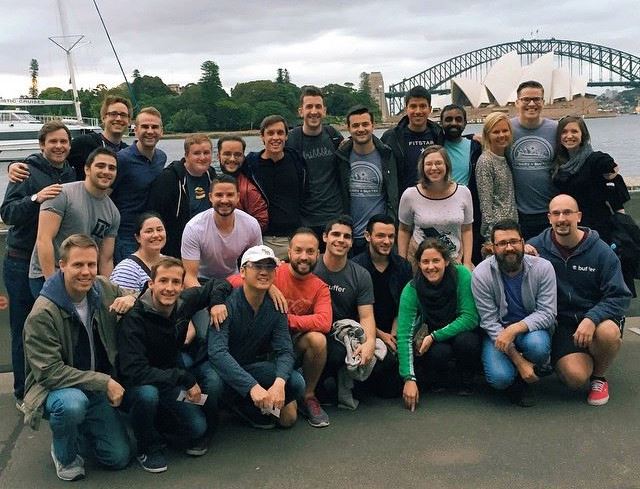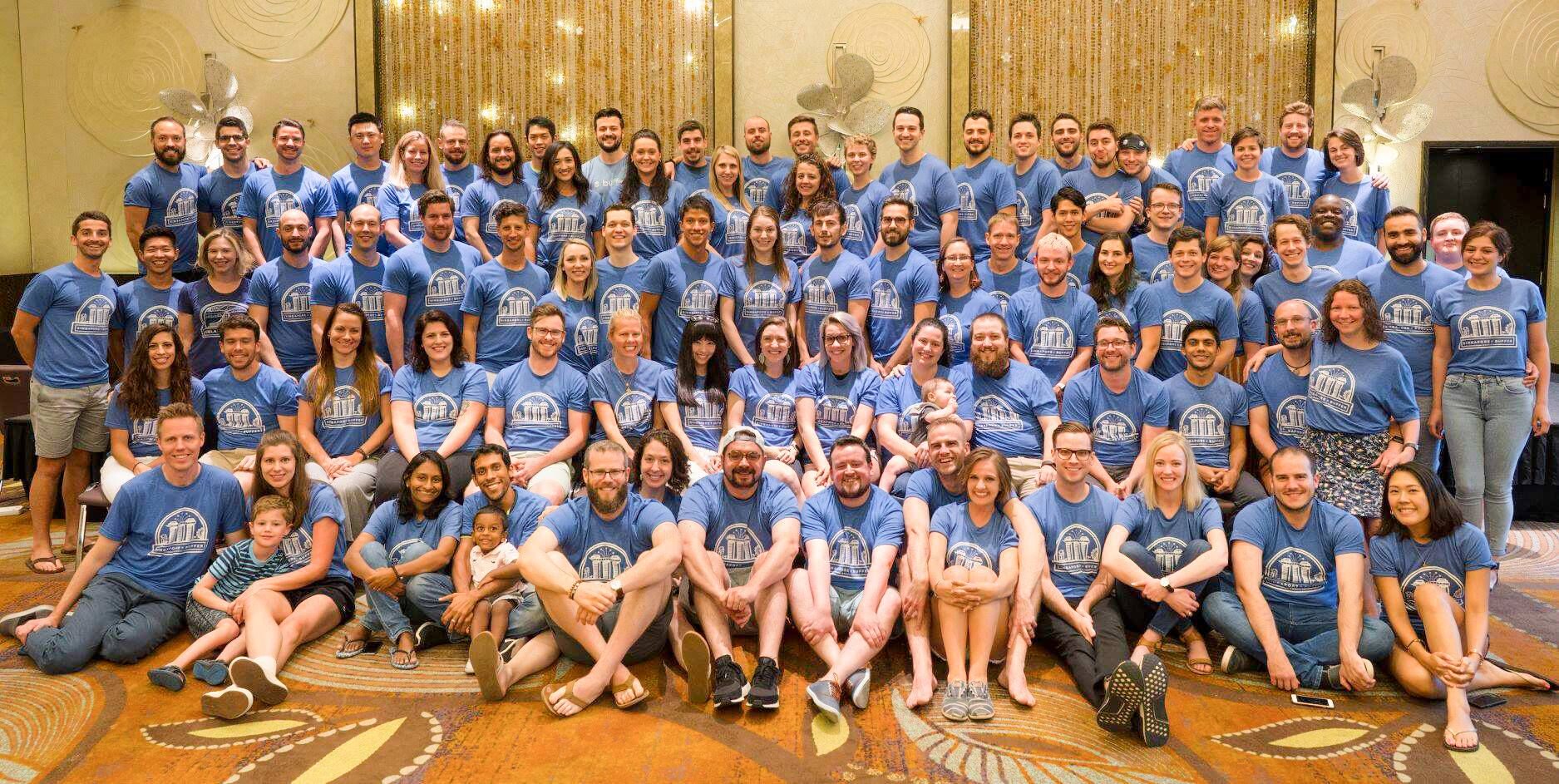From the interviews with Buffer until now, over four years later, I have the feeling I work in a unique environment and I want to share here some lessons I’ve learnt so far.
Thirty days after sending my application to Buffer, in November of 2014, I received an email from our CTO back then, Sunil, asking me if I could have a call for the first interview. Two months later I attended my first Buffer retreat, in Sydney.

From the interviews with Buffer until now, over four years later, I have the feeling that I work in a unique environment and I want to share here some lessons I’ve learnt so far.
Ah, and the team has grown a lot during my time here, here we are in Singapore with some of our significant others in 2018:

Communication
English is not, as you can probably guess, my first language, so when I joined Buffer one of the goals was communicating well with my teammates. I expected a business English style but I couldn’t be more wrong. The language used at Buffer is much more friendly, close but at the same time carefully crafted to respect everybody’s cultural backgrounds and language barriers. I confess this was at first hard but I learnt that the way you communicate, especially in a remote environment, defines a lot the culture of the workplace.
For example, If you use a word or concept that’s only known in the US you’re excluding other people that might not have that context. If someone is wrong, you can tell them but there’s no need to do it publicly so the other person can save face. Little things matter.
Remote
Buffer is a fully remote company, so we don’t even have an office and this weekend I could go to another country and an email to my team would be enough, just to reschedule some calls if necessary.
Yes, this is amazing and allows you to have a flexibility and lifestyle that you can’t even compare with a traditional work environment. I can’t thank enough Buffer for this. It has allowed me traveling when I wanted, try different schedules, spending more time with my family and saving a lot of hours every week because I don’t need to commute, but there are other aspects of a remote work environment that come with it and are not so good.
The positives aspects are way more than the negative ones but not everything is working from beautiful spots and traveling every week. Remote work is not for everybody and sometimes is harder in terms of work/life balance and motivation than a more traditional office environment.
First and foremost, when you have a hard problem in hand, is equally hard from a beach in Thailand or your beautiful private home office. The focus, collaboration and effort required to overcome it are the same.
Also, when your professional world is there after opening your laptop that’s next to you and you don’t have a schedule is not easy to separate your work from the rest of your life if you’re not intentional about it. You don’t leave work “at work” because you carry it all the time with you if you want.
You’re also responsible of setting up a work environment that works for you, and that takes months to discover. Besides, setting up a schedule and clear boundaries with your family and friends to make them understand that being at home doesn’t mean you’re free is not so easy.
The other aspect of remote work is that getting help is usually not immediate and that’s good, since you can respect more other people’s schedules, but especially if you’re junior in your area, it might make you feel more isolated. It’s true that we help each other but we don’t share coffee or lunch every day so you need to make an extra effort to improve the collaboration and sharing with your team.
After 4 years my schedule looks very similar to a regular one in an office. I mainly work in the morning, starting early with a quick stop to drop my kid at the day-care center, and leave the evening for some calls if I have them. I’ve discovered that silence and a fresh mind in the morning works best for me.
If you’re interested in improving as a remote worker, you should read Deep Focus by Cal Newport. Focus is a rare skill these days.
Culture and leadership
Buffer is a special company in terms of culture and transparency. You can know how much we make as a company, our salaries, our growth, how many people use the product, our values and many other things we share in our open blog.
Many changes have happened in my time at Buffer so far. Some things worked great from the first time they implemented it and others have been discarded or updated when needed. When I joined Buffer, for example, there was no parental leave policy because nobody had had a baby while working here.
The lesson I’ve learnt after so many changes is that it’s impossible to join a startup and expect them to have all the answers and protocols like a big corporation but that’s ok as long as you trust the leaders of the organization.
I’ve seen countless examples of Buffer actively trying to improve things for the team without asking and that makes me trust a lot our leaders so I’m sure that whatever change or experiment that comes in the future will come or be changed to make it better for us. This is probably one of the key aspects that makes me keep working here after four years.
Changing things
Coming from more traditional companies, I was very surprised when I joined Buffer and I could talk directly to the CEO or the CTO about everything. This was true when we were 25 but still is nowadays with 80+ teammates. I can book a call with the CEO, see the leaders weekly call notes and submit an anonymous question to them or give feedback. We also have anonymous surveys to evaluate how we are as employees and what we’d like to improve.
More lessons
I’ve learnt so many other things about software, product, marketing and company culture but these are the main ones, I’ll probably write more about this if I see interest. Reach out if you have any questions about Buffer or my journey so far here, I’d love to talk.